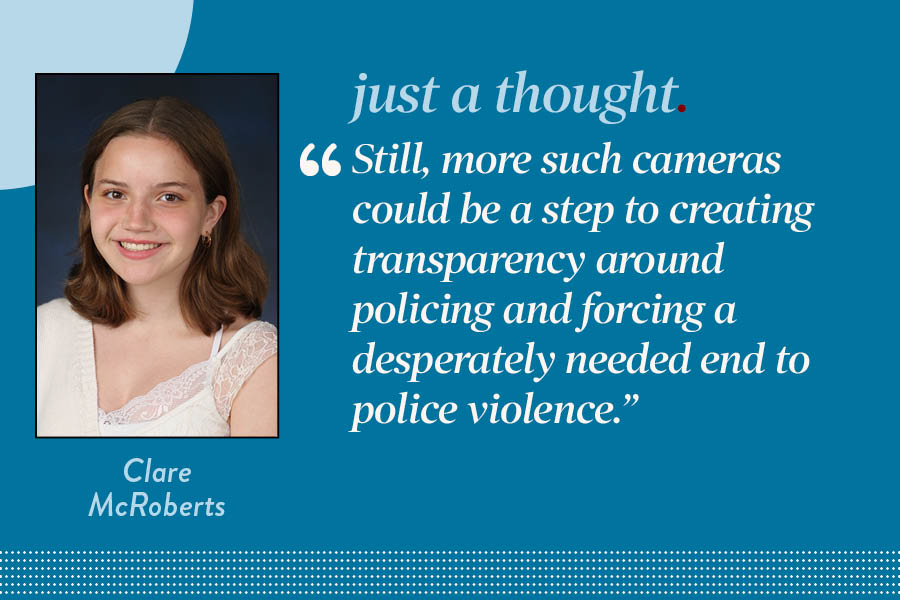Surveillance cameras watch the police, too
Although surveillance cameras can pose some threats, they can also be productive in reducing police brutality and increasing transparency.
February 24, 2023
For years, advocates of privacy rights have raised concern about the use of hundreds of thousands of surveillance cameras on street lamps and on street signs in major cities across the country; Chicago has about 30,000.
The worry is valid, but the intense surveillance of people also turns out to have an upside: it may be one aspect of a solution to police brutality.
In Memphis, Tennessee, Tyre Nichols died three days after being beaten, kicked, pepper-sprayed and hit with a baton on Jan. 7 during a police stop. The five police officers have been charged with murder, and other first responders have been fired. Initially, a police report described what had happened with misleading terms. But because of cameras worn by the police officers — and a city surveillance camera that pivotally captured the scene more clearly — the public learned of all that Mr. Nichols had suffered.
The proliferation of surveillance cameras creates real risks to people’s sense of autonomy. Still, more such cameras could be a step to creating transparency around policing and forcing a desperately needed end to police violence.




























































